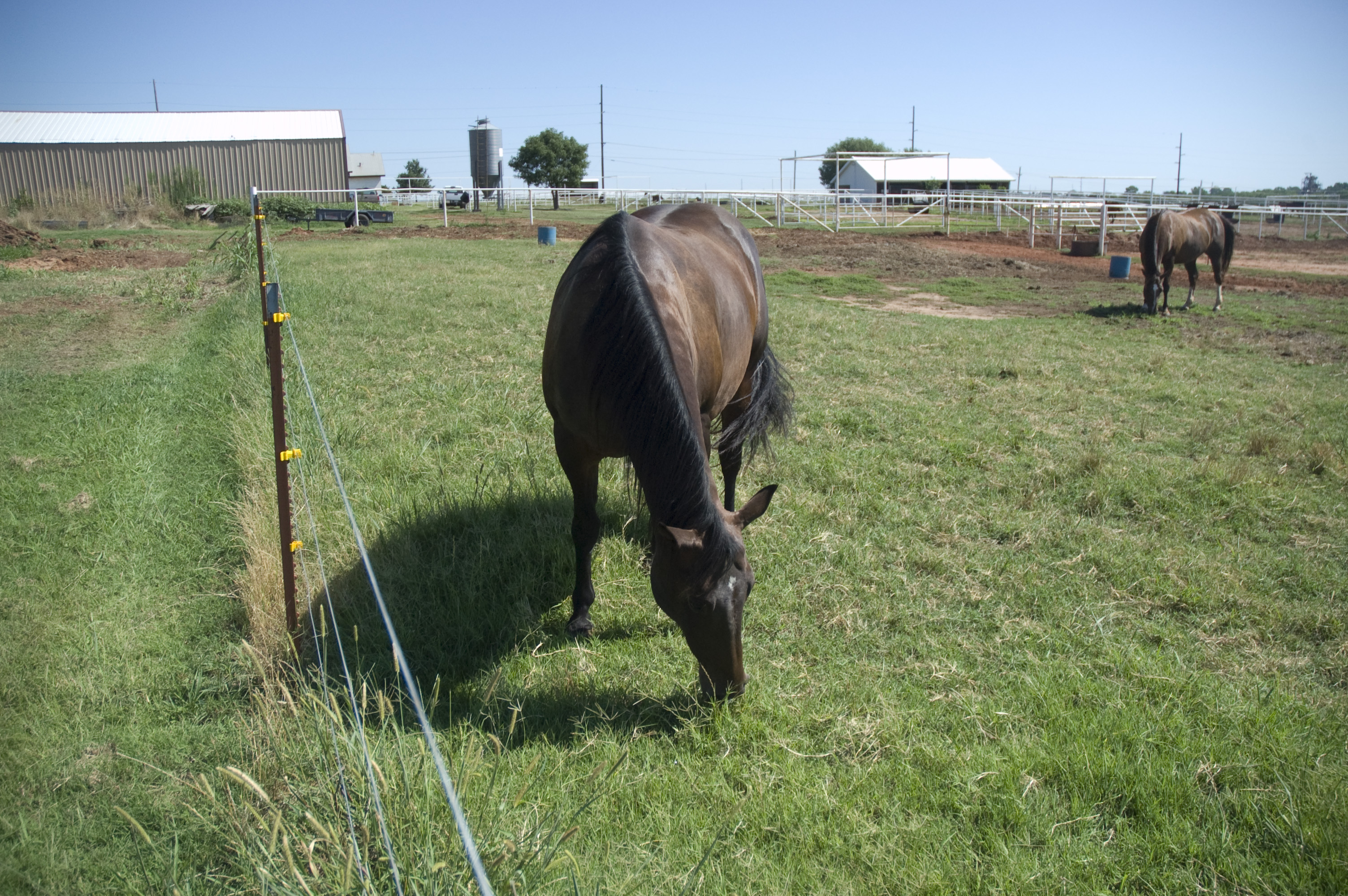
Agricultural News
Horse Owners Should Take Precautions Against West Nile
Wed, 04 Jun 2014 10:12:57 CDT

The Oklahoma Department of Agriculture, Food, and Forestry is encouraging horse owners to take precautions and vaccinate their animals to protect against the West Nile Virus (WNV) and Eastern Equine Encephalitis (EEE). There have been more than 40 cases in each of the past two years in Oklahoma where horses have been positively diagnosed as infected with mosquito-carried diseases. The bird population serves as the reservoir for the viruses, and it is then spread by mosquitos to horses and humans.
The mosquitos most likely to transmit WNV and EEE lay eggs in small pools of standing water. Adult mosquitoes can hatch in 10 days during the warmest months of the summer. Mosquitoes can become infected with both WNV and EEE after feeding on an infected host; such as birds carrying the virus. Within 10 to 14 days, the mosquito can transmit the virus to both humans and horses.
"Signs of West Nile Virus include weakness, fever, incoordination, seizures, blindness and difficulty getting up," said Assistant State Veterinarian Michael Herrin, D.V.M. "There are several vaccines available, and we are encouraging horse owners to visit with their veterinarian and determine the vaccination protocol that will best fit their operation."
Oklahomans can reduce the risk of both EEE and WNV by eliminating places where mosquitos breed such as standing water. Horse owners should not let water stagnate in birdbaths or water tanks and should turn over wheelbarrows when not in use. Any containers that are needed for constant use, such as water troughs, should be emptied and flushed twice a week in order to remove the possible mosquito eggs. When possible, owners should reduce horses' outdoor exposure at dawn and dusk, the times of day when mosquitos that transmit the West Nile virus are most active.
WebReadyTM Powered by WireReady® NSI
Top Agricultural News
More Headlines...




















